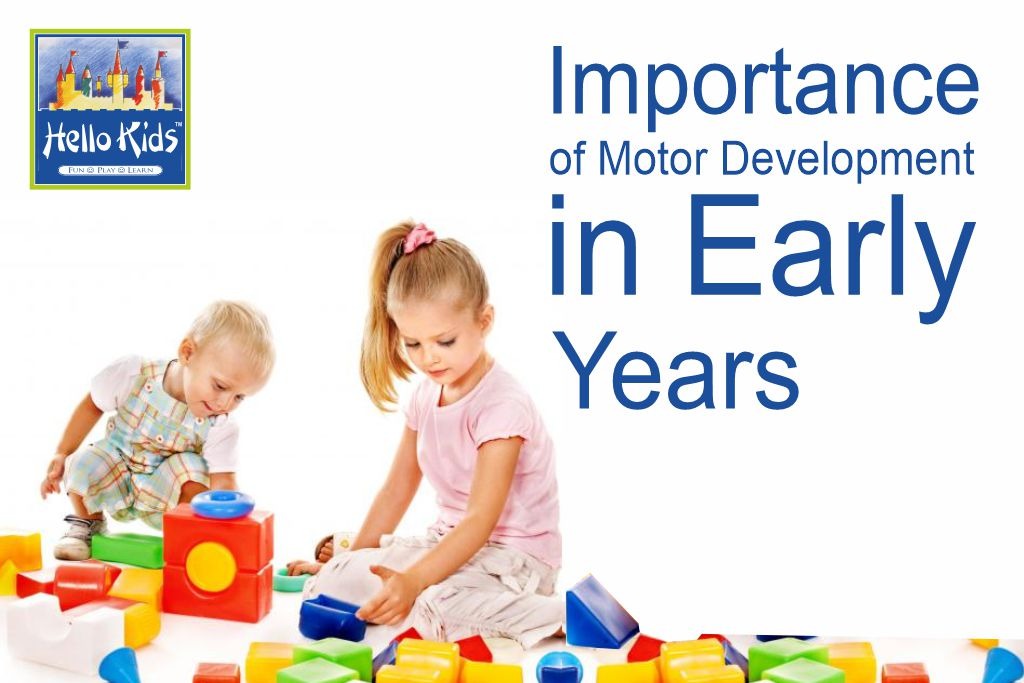Importance of Motor Development in Early Years

“Be free all worthy spirits, and STRETCH yourselves, for greatness and for height”
– George Chapman
Motor Development implies the physical growth and strengthening of a child’s bones, muscles and ability to move and touch his/her surroundings. Physical development is tied to areas of other kind of developments too and hence it’s important throughout a child’s early life.
For a baby’s physical strength and movement, motor skills are very essential and it is used everyday throughout our lives. Motor development is what that helps us to do things like lifting things, pulling, pushing, etc.
Soon after birth the motor skills and motor control starts developing and it gradually progress as the children grow.
“Presenting toys and tools at the mid line allows young children to use the preferred hand to grasp and manipulate the object, which reinforces hand dominance acquisition”, as said by Dr Marianne Gibbs. It helps the child in moving objects to different spots or to their hands. This will change children’s behaviour by making child capable to move past the tantrums and defiance.
Stages of Motor Development
Motor development involves 7 stages and plays key role in an individual’s life:
- Reflexive
- Rudimentary
- Fundamental
- Sports Skill
- Growth & Refinement
- Peak Performance
- Regression
Development is age related and not age dependent.
4 Phases of Motor Development
Motor Development is nothing but just learning to move with control and efficiency and is characterized through 4 predictable phases.
- Reflexive Movement Phase
(Sub Cortially Controlled) (0-4 month’s age)
- Rudimentary Movement Phase
(Stability Skills) (0-2 year’s age)
- Fundamental Movement Phase
(2-7 years age)
- Sports Related Movement Phase
(7 years – Adulthood)
The 6 Motor Skills
6 components of motor skills which are related to the fitness according to Glencoe/McGraw-Hill Education are:
- Agility
- Balance
- Coordination
- Power
- Reaction Time
- Speed
A motor skill is associated with muscle activity.
Factors Affecting Motor Development
- Growth of the child
- Environment
- Genetics
- Muscle Tone
- Gender
Motor Development includes Physical activities and your child’s brain is a major part of it. It uses the brain, muscles of the body to allow these skills to develop, connect and build with all other parts of your child’s development – language, social-emotional and behavioural. Hence it is much more than movements and muscle growth.
Motor skills help connect your child into novel experiences that also leads to emotional and physical bonds like a hug. A hug physically makes child close to parent and also kindles an emotional intimacy.
Thus, don’t let your child just spent hours in front of cartoons and television. Let them sit, stand, walk, run, jump, handle the cutlery while having food etc. Let them grow in flying colours.
